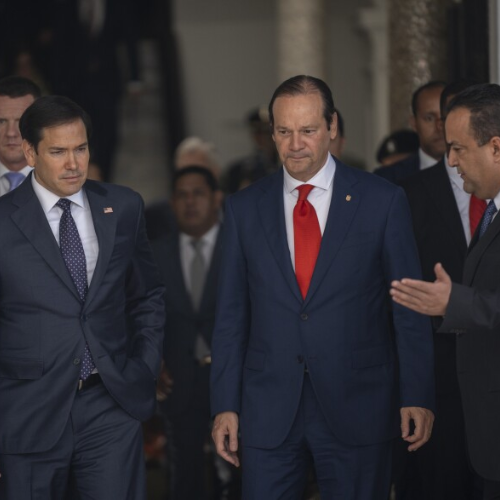The Trump administration is taking an aggressive stance against crime organizations in Latin America, with plans to label several drug cartels as foreign terrorist groups. This bold move is based on a recent executive order aimed at completely eliminating the power of these criminal organizations, which are considered a significant threat to national security.
The list includes eight groups, mostly based in Mexico, but also involves gangs with origins in Venezuela and El Salvador. Labeling these cartels as terrorist organizations will allow the United States government to impose harsh sanctions and take stronger actions against their activities. Here’s what you need to know about this major development.
The New “Terrorist” Label and Its Impact
President Trump signed an executive order on January 20, calling for immediate action against major drug cartels. These groups are being described as more than just organized crime networks—they are considered a national security threat. Once designated as terrorist groups, the cartels will face broad economic sanctions. This means that anyone doing business with these organizations, directly or indirectly, could face severe consequences.
The order also gives U.S. officials the authority to freeze financial assets and penalize those who assist these cartels. The designation aims to weaken the cartels’ operations by cutting off their funding and making it harder for them to function internationally.
Trump Administration Shuts Down Task Force Targeting Russian Oligarchs
One of the organizations being targeted is the infamous MS-13 gang, also known as Mara Salvatrucha, which was initially formed in the United States by Salvadoran immigrants. The group is notorious for violent crimes but plays a smaller role in drug trafficking. Another group on the list is Tren de Aragua, a Venezuelan gang.
In Mexico, six cartels are under scrutiny: the Sinaloa cartel, Jalisco New Generation cartel, Northeast cartel, the Michoacán Family, United Cartels, and Cartel del Golfo. These groups dominate the drug trade and have long been linked to trafficking fentanyl, a deadly opioid responsible for numerous overdose deaths in the United States.
Mexican Cartels: A Growing Threat
The Sinaloa and Jalisco New Generation cartels are among the most powerful and dangerous. They control significant portions of the drug trade and determine the price of narcotics in cities as far away as New York and London. These groups are responsible for producing and smuggling fentanyl into the U.S., fueling the ongoing opioid crisis.
While the Sinaloa and Jalisco cartels dominate the market, smaller groups like the Northeast cartel and the Michoacán Family help spread their influence. These smaller groups often act as the cartels’ muscle on the ground, assisting in territorial disputes and enforcing control over communities.
In addition to trafficking drugs, some cartels have expanded into other crimes, such as migrant smuggling. Migrants traveling from South America to the United States often pass through dangerous areas controlled by these groups, paying steep “protection fees” to ensure safe passage.
The Gulf Clan, or Clan del Golfo, based in Colombia, has also been linked to supplying cocaine to Mexican cartels for years. Recently, the group shifted its focus to smuggling migrants after a drop in cocaine prices in 2017. This change in operations has turned the Darién Gap, a treacherous jungle passage connecting South and North America, into a hotspot for illegal migration.
Behind the Scenes: Drawing Up the List
The decision to label these organizations as terrorist groups is being coordinated by the U.S. State Department. This action stems from a directive in President Trump’s executive order, which gave the department just two weeks to finalize the designations.
Strategic Blow: Trump Ends India’s Chabahar Port Sanctions Waiver
However, the process has not been without delays. Officials debated whether to include organizations involved in migrant smuggling alongside drug cartels. The list has already gone through several revisions, and discussions about the scope of the order have reportedly caused some holdups.
The State Department has informed Congress of the upcoming changes, and an official announcement is expected soon. While Mexican officials have engaged in negotiations to prevent the designations, the Trump administration remains focused on cracking down on cartels and organized crime.
Cartels’ illegal activities are estimated to generate billions of dollars annually. The profits of Mexico’s cartels alone could be as high as $20 billion, accounting for nearly 2 percent of the country’s gross domestic product. This level of financial power allows them to operate with impunity in many regions, often outpacing local governments.
The proposed designations are a reflection of the administration’s belief that cartels are no longer just criminal organizations—they are seen as threats to national security that require the same level of urgency as combating terrorist groups.


